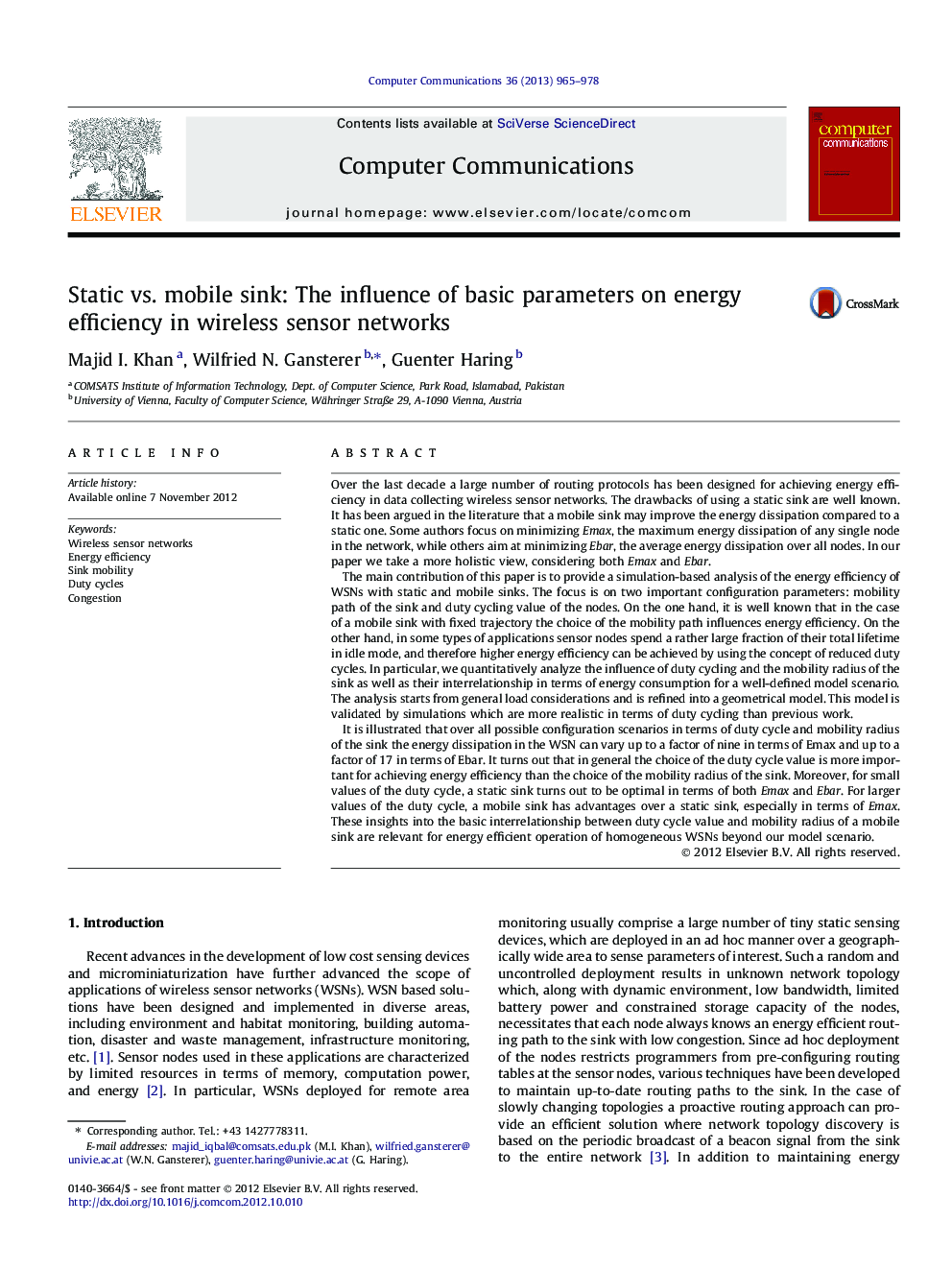| کد مقاله | کد نشریه | سال انتشار | مقاله انگلیسی | نسخه تمام متن |
|---|---|---|---|---|
| 10338311 | 693518 | 2013 | 14 صفحه PDF | دانلود رایگان |
عنوان انگلیسی مقاله ISI
Static vs. mobile sink: The influence of basic parameters on energy efficiency in wireless sensor networks
ترجمه فارسی عنوان
استاتیک در مقابل سینک سیار: تأثیر پارامترهای اساسی در کارایی انرژی در شبکه های حسگر بی سیم
دانلود مقاله + سفارش ترجمه
دانلود مقاله ISI انگلیسی
رایگان برای ایرانیان
کلمات کلیدی
شبکه های حسگر بی سیم، بهره وری انرژی، تحرک سینک، چرخه های کاری، جابجایی،
موضوعات مرتبط
مهندسی و علوم پایه
مهندسی کامپیوتر
شبکه های کامپیوتری و ارتباطات
چکیده انگلیسی
It is illustrated that over all possible configuration scenarios in terms of duty cycle and mobility radius of the sink the energy dissipation in the WSN can vary up to a factor of nine in terms of Emax and up to a factor of 17 in terms of Ebar. It turns out that in general the choice of the duty cycle value is more important for achieving energy efficiency than the choice of the mobility radius of the sink. Moreover, for small values of the duty cycle, a static sink turns out to be optimal in terms of both Emax and Ebar. For larger values of the duty cycle, a mobile sink has advantages over a static sink, especially in terms of Emax. These insights into the basic interrelationship between duty cycle value and mobility radius of a mobile sink are relevant for energy efficient operation of homogeneous WSNs beyond our model scenario.
ناشر
Database: Elsevier - ScienceDirect (ساینس دایرکت)
Journal: Computer Communications - Volume 36, Issue 9, 15 May 2013, Pages 965-978
Journal: Computer Communications - Volume 36, Issue 9, 15 May 2013, Pages 965-978
نویسندگان
Majid I. Khan, Wilfried N. Gansterer, Guenter Haring,
